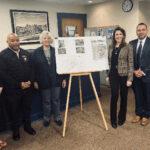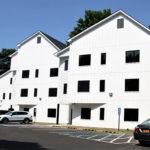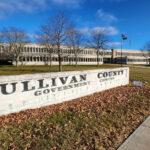Dear Editor,
New York’s proposed bills, S3505B & A4282B, claims to address local elections but presents a worrisome threat to the democratic process. While its aim may be to streamline elections, the bill’s provision to move certain local elections to even-numbered years is a concerning development that could have detrimental effects on voter participation and representation. This article explores the potential drawbacks of the bill and highlights why it is a disservice to voters.
- Decreased Voter Turnout in Local Election Years
One of the most significant issues with these bills is the potential for decreased voter turnout in local election years. By aligning town and certain county elections with statewide and national elections held in even-numbered years, local issues and candidates risk being overshadowed. Research shows that voter turnout is generally higher during presidential and gubernatorial elections, while local elections tend to have lower participation. This bill exacerbates that problem by merging the majority but not all of local elections with more high-profile races, resulting in fewer informed voters making choices on critical local matters.
- Dilution of Local Issues
Local elections play a vital role in addressing community-specific concerns and ensuring local representation. Moving these elections to even-numbered years undermines the focus on local issues. Voters may be less inclined to engage with or prioritize local matters when confronted with national or state-level contests. This shift could lead to candidates and elected officials focusing less on the needs of their local communities, instead adopting broader agendas to appeal to a wider electorate.
- Limited Voter Engagement
Separating local and state/national elections has its benefits. It allows voters to focus on the specific needs and policies of their communities without distractions. By merging local elections into even-numbered years, the bill risks voter fatigue and information overload. Engaging with a large number of candidates and ballot measures simultaneously can overwhelm voters, leading to less informed decision-making and diminished civic participation.
- Reduced Accountability
Local officials are elected to serve the interests of their communities. Moving local elections to even-numbered years could weaken the accountability of elected officials. Voters may find it more challenging to track the performance and actions of local candidates and incumbents when their campaigns and platforms are buried within the broader context of statewide or national politics. Consequently, the bill may inadvertently reduce the ability of voters to hold local officials accountable for their actions.
- Disproportionate Influence of Partisan Politics
Aligning local elections with even-numbered years could exacerbate the influence of partisan politics on local races. Statewide and national political party affiliations often dominate elections during even-numbered years. Placing local candidates on the same ballot as partisan candidates may lead to increased partisanship in local races, potentially overshadowing the candidates’ individual merits and their ability to address the unique needs of their communities. Local issues should be non-partisan by nature, and merging them with partisan politics risks undermining their independent representation.
Conclusion
While the intentions of these bills may appear well-intentioned, the move to align certain local elections with even-numbered years carries significant risks for voters. Decreased turnout, diluted focus on local issues, limited voter engagement, reduced accountability, and the potential for increased partisanship are all concerns that should be carefully considered. It is essential to protect the integrity of local democracy by preserving the distinctiveness of local elections and encouraging active participation and representation at the grassroots level.
Ulster County Board of Elections Commissioner (Republican)








